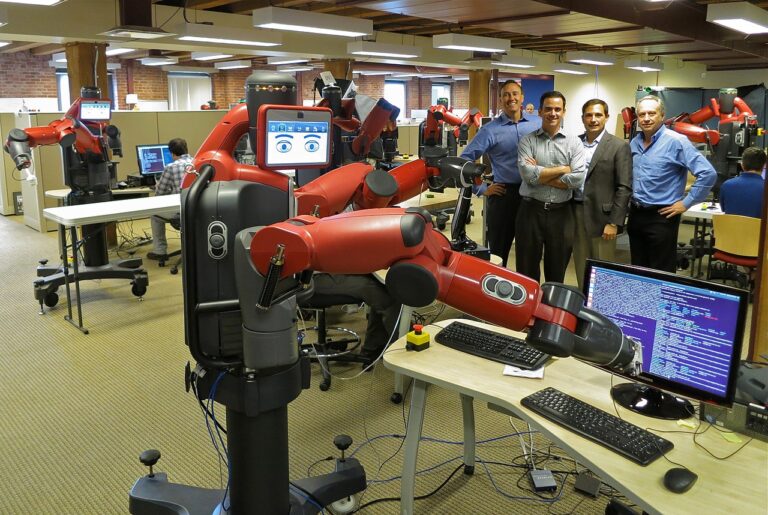
Andrew Strom is a union lawyer based in New York City. He is also an adjunct professor at Brooklyn Law School.
While I agree with Ben that Dallas Cowboys owner Jerry Jones violated the National Labor Relations Act when he threatened to bench players who refuse to stand for the national anthem, if the facts were slightly different the players would face a much starker choice. Assume that the players were not covered by a collective bargaining agreement that simultaneously limits management’s rights and bars strikes. Then, the incoherent partial strike doctrine might come into play.
My understanding is that NFL players are not currently required to stand for the national anthem. Last week, the NFL and the players’ union, the NFLPA, issued a joint statement affirming that “there has been no change in the current policy regarding the anthem.” If the owners wanted to change the rule so that players would be subject to discipline for kneeling during the anthem, that would be a mandatory subject of bargaining with the union. But, since the vast majority of workers in this country are not covered by collective bargaining agreements, it’s worth considering how this dispute might have played out if the players did not have a union. Without a collective bargaining agreement limiting management’s rights, any team owner could simply order the players to stand during the national anthem. The players would then have a right to strike to protest that demand, and if they struck, they would be protected by the NLRA. But, perversely, if the workers simply refused to stand, that refusal could be deemed an unprotected partial strike. The law regarding partial strikes acts as a trap for unwary workers who wrongly assume that a less disruptive protest would be as protected as a full strike. For example, back in 1995, teaching assistants at Yale University decided to wage a “grade strike.” They decided to finish teaching their classes, but just refuse to turn in any grades. The teaching assistants realized that the absence of grades would especially harm seniors who were applying for jobs or graduate school, and so they agreed to write recommendation letters for students while the grade strike was ongoing. Based in part on this effort to mitigate the harm caused by their actions, the NLRB found that the teaching assistants had engaged in an unprotected partial strike.
An even more striking instance of the harshness of this doctrine is found in Vic Koenig Chevrolet. In that case, the unionized mechanics at a car dealership service department went on strike. The dealership also employed a group of workers known as “lot boys,” who were unrepresented. The lot boys moved vehicles around, but also did some light maintenance work on the vehicles, such as checking and replenishing fluids, or changing lightbulbs. After the strike began, one lot boy, Ruble, said that he would not do any work that involved using tools. Ruble clearly did not want to perform struck work, and if he had simply refused to do struck work, he would have been protected, but because the line between his regular duties and the mechanics’ work was not clear cut, the Board found that he lost the protection of the Act by refusing to perform some of his regular duties. In reaching this result, the ALJ acknowledged that this was “a harsh result for an individual employee … very likely unknowledgeable about labor relations,” but found that “no accommodation is made for his naivete in labor relations.”
The Board has never provided an adequate rationale for why a partial strike by unrepresented workers is unprotected. In a 1954 case, Valley City Furniture Company, where unionized workers engaged in a refusal to work mandatory overtime, the Board offered the following rationale for finding the partial strike unprotected: “Were we to countenance such a strike, we would be allowing a union to do what we would not allow any employer to do, that is to unilaterally determine conditions of employment. Such a result would be foreign to the policy objectives of the Act.” Of course, it is only where a union has been certified or recognized that an employer may not unilaterally determine conditions of employment. Thus, this rationale cannot possibly explain why unrepresented workers should be denied the right to wage a partial strike.
In Valley City Furniture, the Board offered a second, less developed explanation for finding the partial strike unprotected: “the Union sought to bring about a condition that would be neither strike nor work.” In subsequent cases, the Board has explained that workers must be “willing to assume the status of strikers – a status contemplating a risk of replacement and a loss of pay.” In other words, “employees cannot properly seek to maintain the benefits of remaining in a paid employee status while refusing, nonetheless, to perform all of the work they were hired to do.” But this is a conclusion rather than an explanation. Let’s start with the issue of pay. If a worker refuses to perform all of the tasks that an employer assigns, the employer could simply reduce the worker’s pay, in the same way that when workers go on a full strike, the employer reduces their pay to zero for the duration of the strike. This may not be an option for minimum wage employees, but that is a special case that can be addressed when the issue arises. What about the notion that in order to gain the protection of the Act, workers must put themselves at risk of replacement? This idea is hard to square with the Supreme Court cases regarding economic weapons used by employers. As the Court said in one case, “an employer may legitimately blunt the effectiveness of an anticipated strike by stockpiling inventories, readjusting contract schedules, or transferring work from one plant to another, even if he thereby makes himself virtually strikeproof.” If an employer is not required to assume any risks if it provokes a strike, it’s not clear why workers should be required to assume risks when they use their economic weapons.
To return to the anthem protests, unrepresented athletes could respond to a demand that they stand during the anthem by going out on strike. But they would lose their rights under the NLRA if they said they were still willing to play, but they just weren’t willing to stand during the song. It’s as if employers had the right to fire workers, but not to issue written warnings. The partial strike doctrine makes no sense, and while I don’t hold out much hope that the current Board will acknowledge that, perhaps someday unrepresented workers will gain the same right that non-union employers have – the right to unilaterally alter their conditions of employment.









Daily News & Commentary
Start your day with our roundup of the latest labor developments. See all
February 20
An analysis of the Board's decisions since regaining a quorum; 5th Circuit dissent criticizes Wright Line, Thryv.
February 19
Union membership increases slightly; Washington farmworker bill fails to make it out of committee; and unions in Argentina are on strike protesting President Milei’s labor reform bill.
February 18
A ruling against forced labor in CO prisons; business coalition lacks standing to challenge captive audience ban; labor unions to participate in rent strike in MN
February 17
San Francisco teachers’ strike ends; EEOC releases new guidance on telework; NFL must litigate discrimination and retaliation claims.
February 16
BLS releases jobs data; ILO hosts conference on child labor.
February 15
The Office of Personnel Management directs federal agencies to terminate their collective bargaining agreements, and Indian farmworkers engage in a one-day strike to protest a trade deal with the United States.